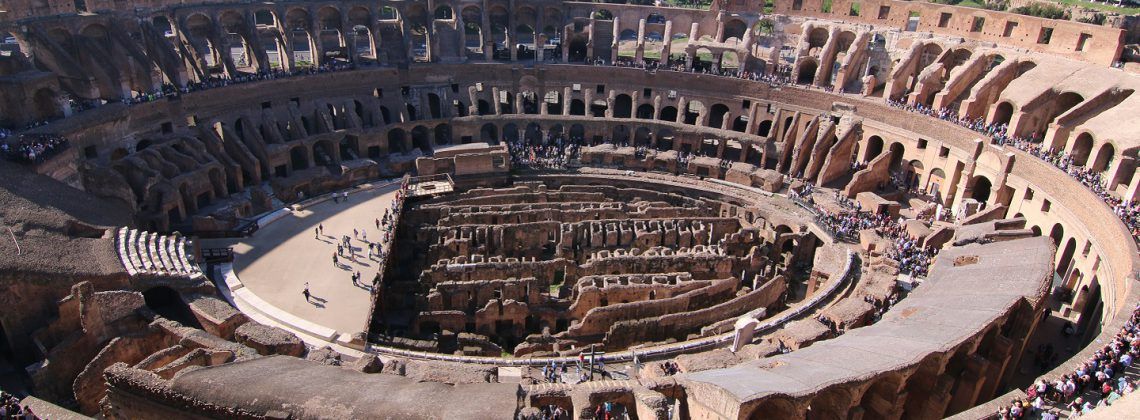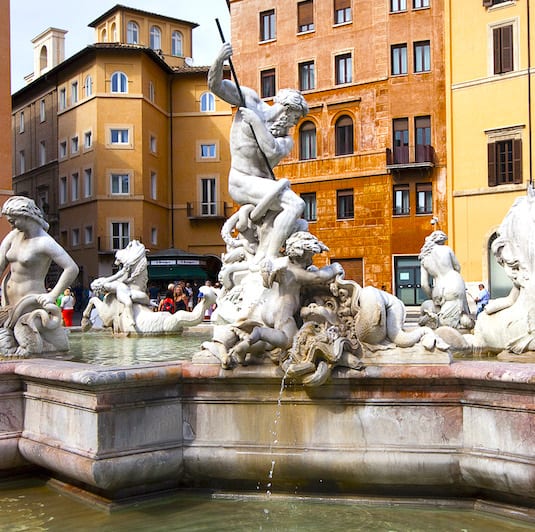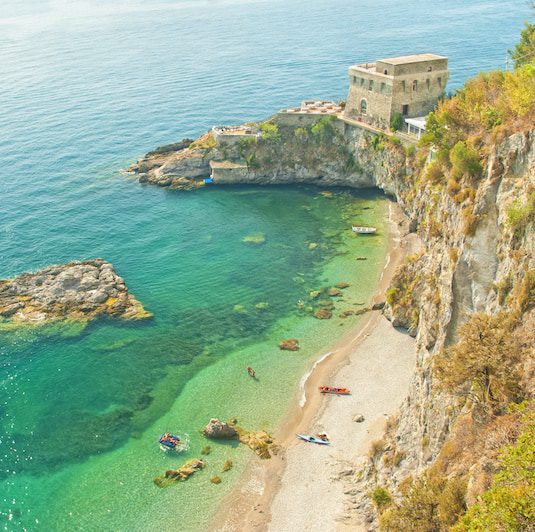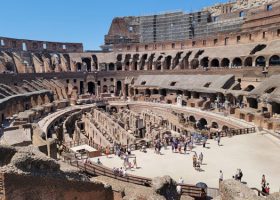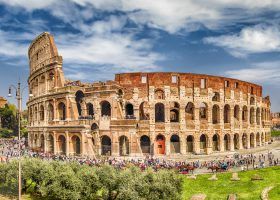The Colosseum is famous for its arena and gladiator fights. But did you know the Romans also hosted massive mock ship battles in the Colosseum—on water? In this article, discover how the Romans were able to flood the Colosseum to host epic naval battles.
Pro Tip:
- Planning your visit to the Colosseum? Bookmark this post in your browser so you can easily find it when you need it.
- See our Colosseum guide for more planning resources.
- Check out our top-rated Colosseum tours for a memorable trip, and see how to see Rome in a day.
Did the Romans Really Flood the Colosseum for Naval Battles?
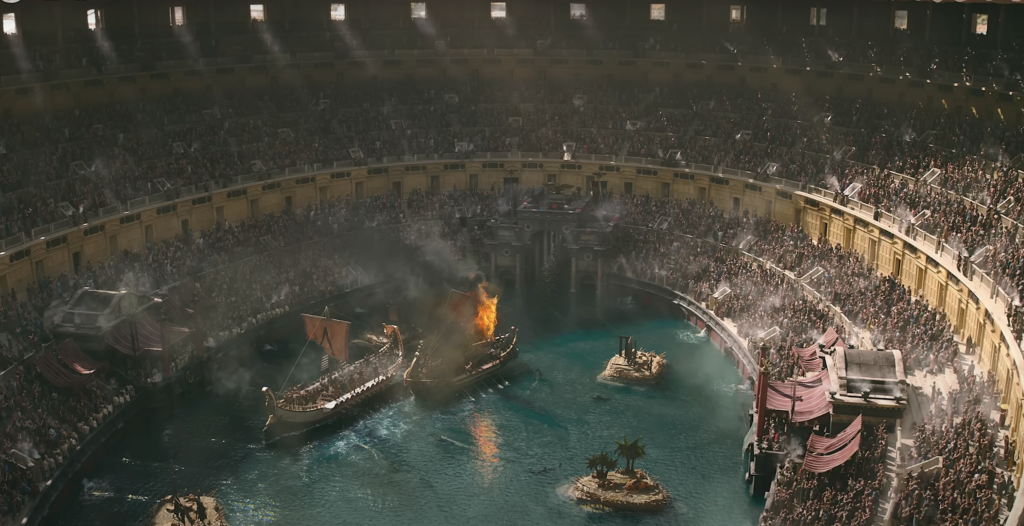
If you’ve watched Gladiator II, you’re probably wondering if the Romans actually flooded the Colosseum to create mock sea battles. Well, the answer is, hell yes they did. The Romans are famous for their love of entertainment—the bloodier the better, in their opinion. You probably already know that the Colosseum was used as an arena for gladiator fights, but that was actually just one of its many uses.
The Romans also used the Colosseum to host mock sea battles in what is referred to as naumachia (more on that below). So how on earth did the Romans pull off turning the Colosseum into a sea for naval battles, and why did they decide to try it in the first place? Keep reading to find out.
Not ready to book a tour? See why a Colosseum tour is worth it.
How Did the Colosseum Naval Battle Tradition Start?
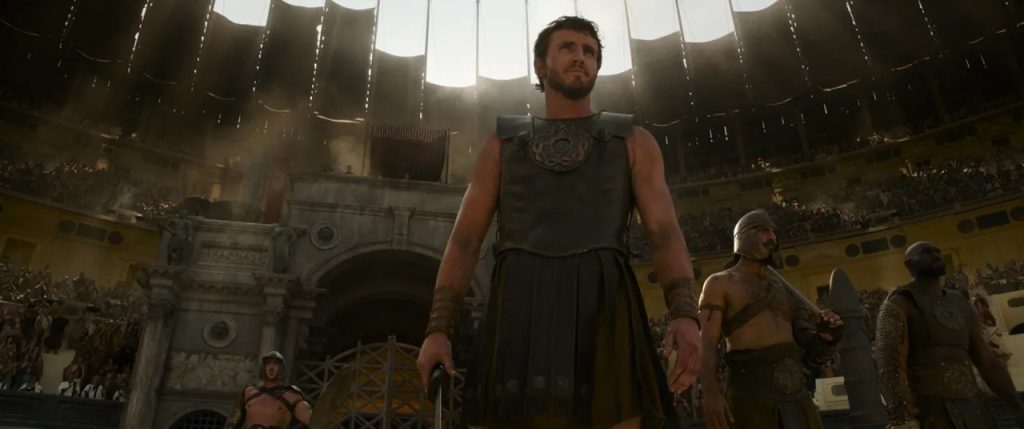
Staged ship battles were called naumachia and began in 46 B.C. when Rome threw a massive party for Julius Caesar. He had just made his triumphant return after defeating his rival, Pompey the Great. The very first naumachia was part of this celebration, in honor of his military efforts against Gaul and Egypt in 46 B.C.
Caesar ordered the excavation of a basin close to the river Tiber, creating a fake lake around 1,800 feet long and 1,200 feet wide and surrounded by marble seating for the wealthy spectators. Up to 3,000 men fought in the sea battle, which featured 12 Roman galleys. It was a truly impressive event, attended by people from all over Italy.
When the Colosseum was finished, Romans asked themselves: what better way to celebrate the building’s capability than to flood the Colosseum and hold a massive naval battle? And so, the first Colosseum naval battle was held during the arena’s opening ceremony.
Emperor Titus ordered the new Colosseum to be flooded. Then, they used special flat-bottomed ships during the battle to accommodate for the shallow water. The event replicated the battle between Athens and Syracuse. They even made an artificial island in the middle of the arena where the sailors landed to fight.
So, the depiction of a sea battle in Gladiator II was actually historically accurate in some ways. One thing the movie may have exaggerated is the shark.
Yes, it made for an epic movie scene, but archeologists haven’t found shark teeth or signs of sharks in the area, so there would be no reason to believe sharks were let loose inside the Colosseum. That said, given Romans loved setting wild and aggressive animals free during fights, it’s not off-brand to imagine a shark being let loose during mock naval battles.
Top Colosseum Tours
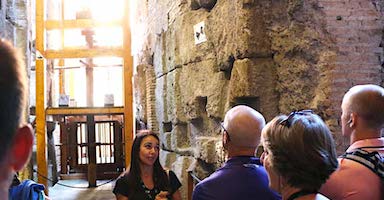
Best Seller
Colosseum Underground Tour with Roman Forum and Palatine Hill
Only 2% of visitors to the Colosseum are able to see the Underground, making tours a rare, exclusive experience. Our tours give you access to the Underground, Arena Floor, and first and second tiers—areas most people never see. Skip the line and enjoy priority access, guided by an expert who brings the Colosseum’s rich history to life. These spots sell out quickly, so don’t wait—secure your place now for this unforgettable opportunity.
See Prices
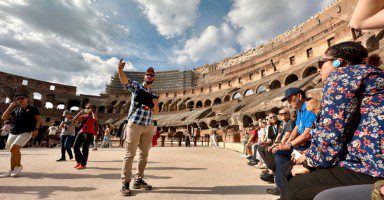
Customer Favorite
Special Access Colosseum Arena Floor Tour Through the Gladiator’s Gate
Reaching the Colosseum’s Arena Floor is no easy feat; tickets sell out quickly, leaving most visitors stuck in crowded corridors with limited views. With us, bypass the lines and enter through the Gladiator’s Gate to stand on the Arena Floor, giving you a front-row view of Rome’s nearly 2,000-year-old symbol of power and glory. With your friendly guide, uncover the Colosseum’s brutal past, then continue to the Roman Forum and Palatine Hill to explore the epicenter of ancient Roman life.
See Prices
Not ready to book a tour? Find out why a Colosseum tour is worth it.
Did the Colosseum Naval Battles Use Real Ships?
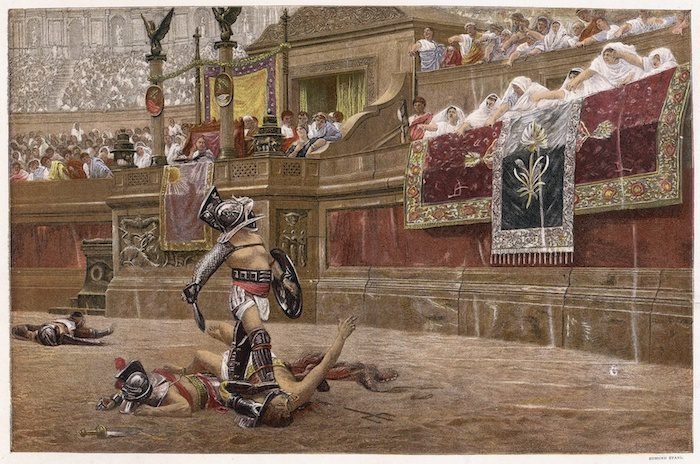
While it was quite the achievement to be able to fill up such a large area with water to host a naval battle, historians believe that actual maneuvers or even floating was unlikely. The space was just too small to engage in lifelike warfare. So, props may have been used to represent a large portion of the ships.
Another naval battle at the Colosseum was documented in A.D. 89. It was orchestrated by Emperor Domitian and is the last recorded naumachia in history. In fact, there aren’t many naumachiae documented at all, largely because staging one was extremely expensive.
It was very difficult to find an appropriately large site to do the event justice. It also required a crew of skilled craftsmen and engineers to create the theatre, the seating, and the ships.
Who Fought in the Colosseum Naval Battles?
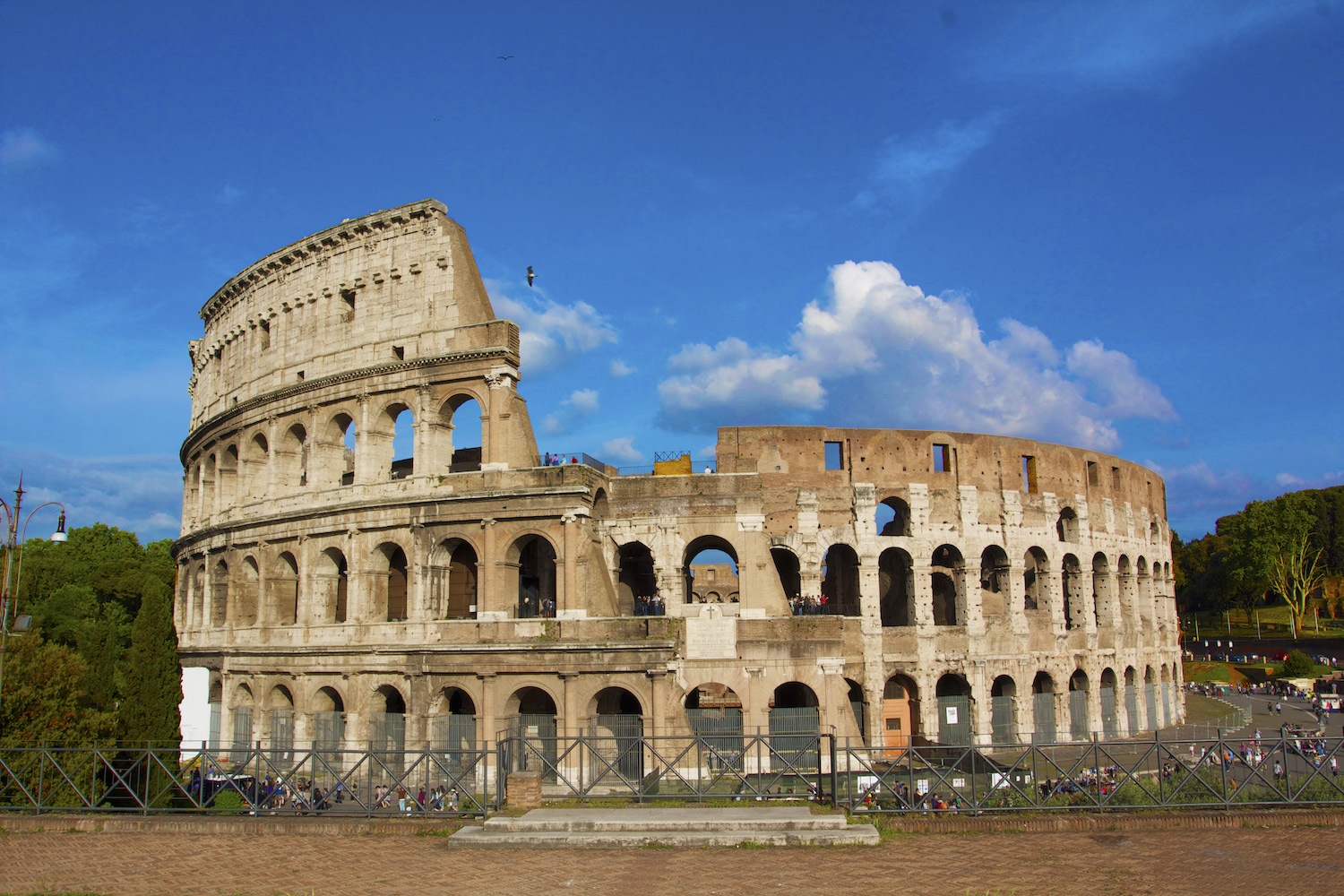
In traditional Roman style, prisoners or those condemned to death were used as cannon fodder for the spectacle. Those who fought were called Naiunachiarii. They usually fought to the death, unless saved by the clemency of the emperor. Also, around 4,000 rowers usually participated.
How Did the Romans Flood the Colosseum?
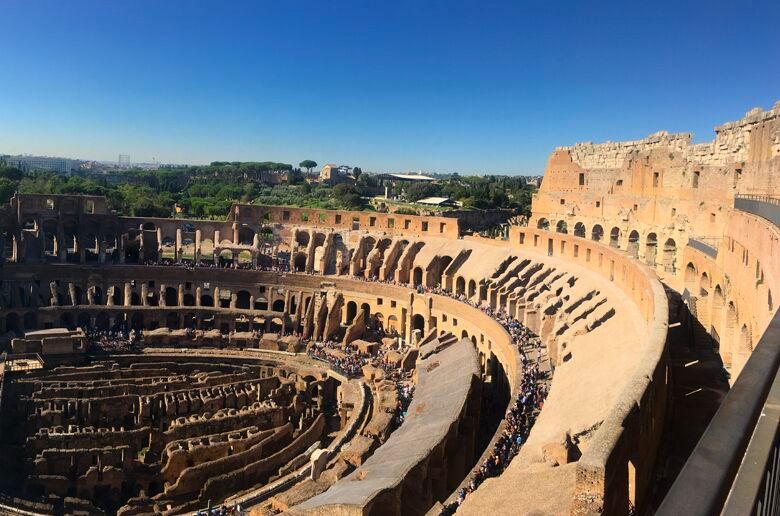
Flooding such a huge space in a short period of time would be a difficult task even for us now, using modern equipment. So, how did they flood the Colosseum? It had to be done quickly in order to avoid losing the audience’s attention—after all, they had come to see grizzly entertainment, not watch a huge bowl fill up with water.
Historians are divided on how they could have managed it and whether they even took place at the Colosseum at all, even though there are writings from the time to back it up.
The Roman writer Cassius Dio wrote that, “Titus suddenly filled this same theatre with water and brought in horses and bulls and some other domesticated animals that had been taught to behave in the liquid element just as on land. He also brought in people on ships, who engaged in a sea-fight there, impersonating the Corcyreans and Corinthians.”
We know that during the Colosseum’s first year it would have been technically possible to flood it with enough water for ships to sail. However, after the construction of the hypogeum—the vast network of tunnels and storage rooms under the floor, built during the reign of Domitian—holding water battles at the Colosseum would no longer have been possible. For that reason, it’s very difficult to get evidence on how the flooding would have worked.
Fortunately, Verona has a similar amphitheater, which gives us an idea on how it would have worked at the Colosseum. Underneath the Veronese arena, there’s a basin connected to two axial conduits. One would have been connected to an aqueduct in order to fill the basin. The other was designed to drain water out again into the Adige River.
Why Did the Colosseum Naval Battles End?
Arena-based naumachiae became more popular than those in lakes or other specially built basins, largely because they were less costly and could, therefore, afford to be staged more frequently.
However, they were also less grandiose. Roman audiences quickly lost interest. Gladiator fights and other similar bloodsports garnered more attention. On top of that, it is likely that the empire’s increasing weakness and financial troubles in the third century meant that holding grand naumachia was simply no longer an option.
Not ready to book a tour? Find out why a Colosseum tour is worth it.
Here’s Where To Stay in Italy’s Most Popular Destinations
Rome, Florence, Venice, Amalfi Coast, and Capri

